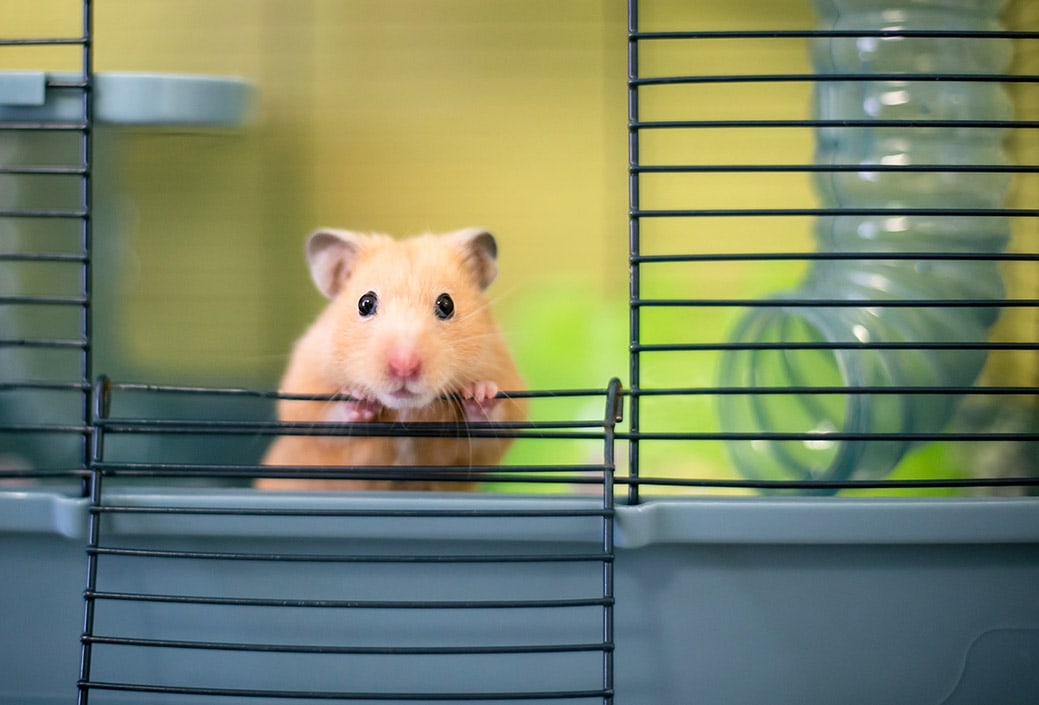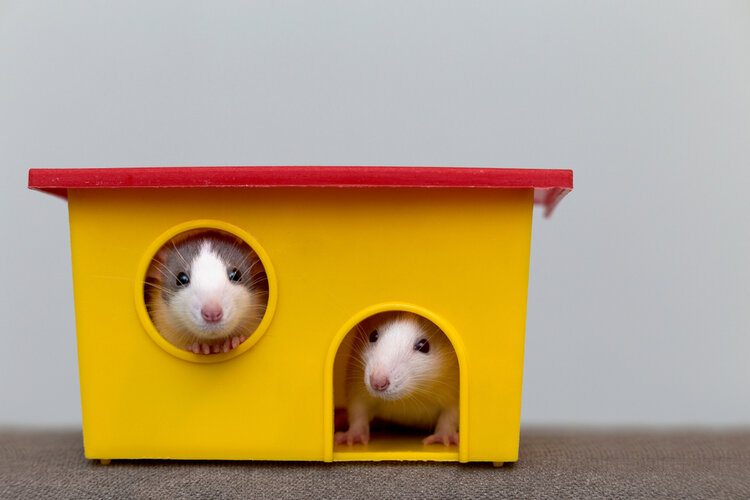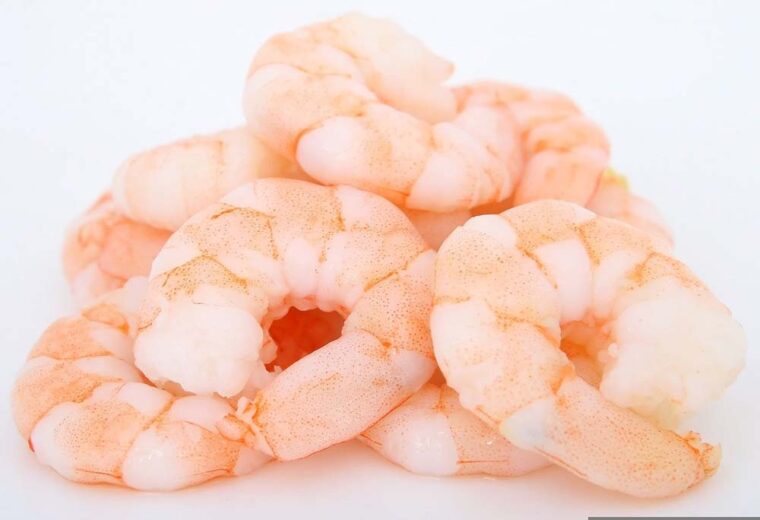
Click to Skip Ahead
Hamsters are great little furry pets that are pretty low maintenance once you’ve got them situated in a spacious and exciting habitat. However, proper nutrition is important for any pet, and hamsters are no different. They require the appropriate balance of protein, carbohydrates, fats, and fiber, but what sort of things can they eat? Can hamsters eat shrimp?
The answer is yes, hamsters can eat shrimp, and they love it! Read on to learn how to provide your hamster with a tasty shrimp treat safely.
How to Give Your Hamster Shrimp
If you plan on giving your hamster this type of shellfish, ensure it is cooked thoroughly. The shrimp should also be free from seasonings and other additives, and it should be boiled or baked, not fried. Ensure you remove the tail and legs from the shrimp before giving it to your hamster.
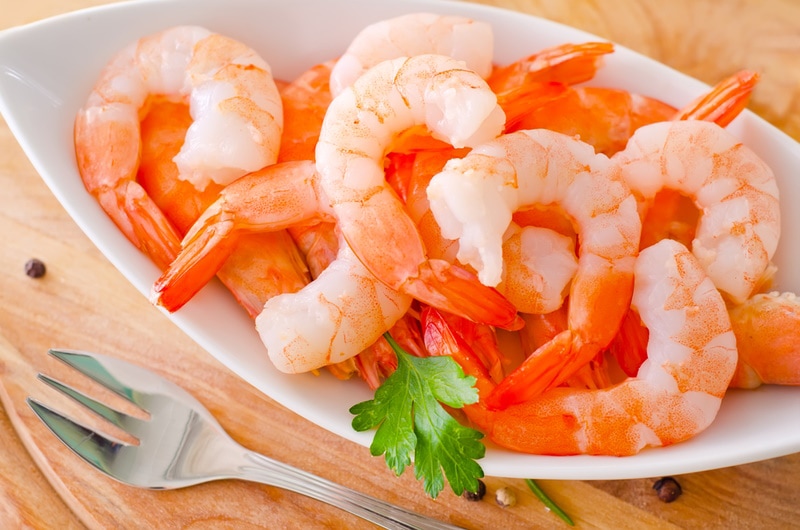
What Are the Nutritional Benefits of Shrimp for Hamsters?
Shrimp can be an excellent protein source if fed in moderation. What’s great about shrimp over other types of meat is it has no excessive fat and is low in calories, with only 6 calories per 5-gram serving. It’s also packed with antioxidants and minerals, such as iodine, potassium, zinc, and magnesium. It also contains iron and phosphorus.
Is There a Drawback to Feeding Shrimp to Hamsters?
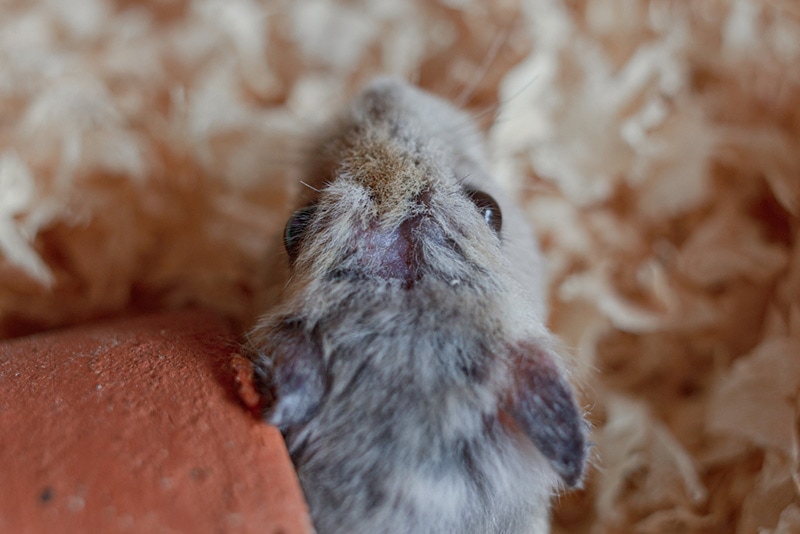
While shrimp offers nutritional benefits for hamsters, bear in mind that shrimp is high in cholesterol, which can contribute to obesity and cardiovascular problems. Shrimp also contains mercury, so it’s important to feed in moderation to prevent harmful quantities from being consumed by your little furry friend.
Some hamsters may experience an allergic reaction to shrimp, just like humans, but it is quite uncommon. You likely won’t know if your hamster will have an allergic reaction to shrimp until you let them try a little, so offer a very small amount initially and watch for adverse reactions.
How Much Shrimp Can I Give My Hamster?
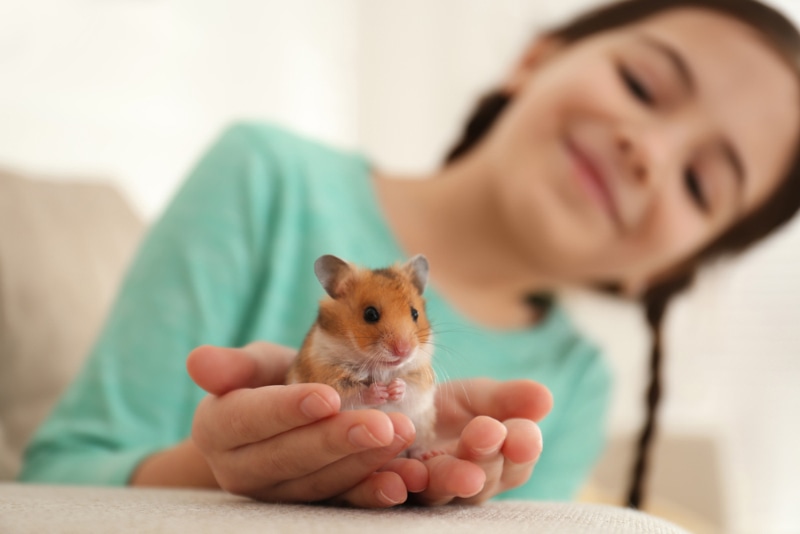
Giving shrimp in moderation is important due to its mercury and cholesterol content. The safe amount will also depend on the hamster breed you have. Let’s break it down:
Can Hamsters Eat Any Kind of Shrimp?
If you’re going to feed your hamster shrimp, aim for freshwater shrimp. Saltwater shrimp has a high salt content and can be harmful to your hamster. Don’t catch shrimp from the wild due to the possibility of being contaminated with bacteria. Also, avoid feeding your hamster raw shrimp due to possible contaminants.
What’s an Ideal Daily Diet for Hamsters?
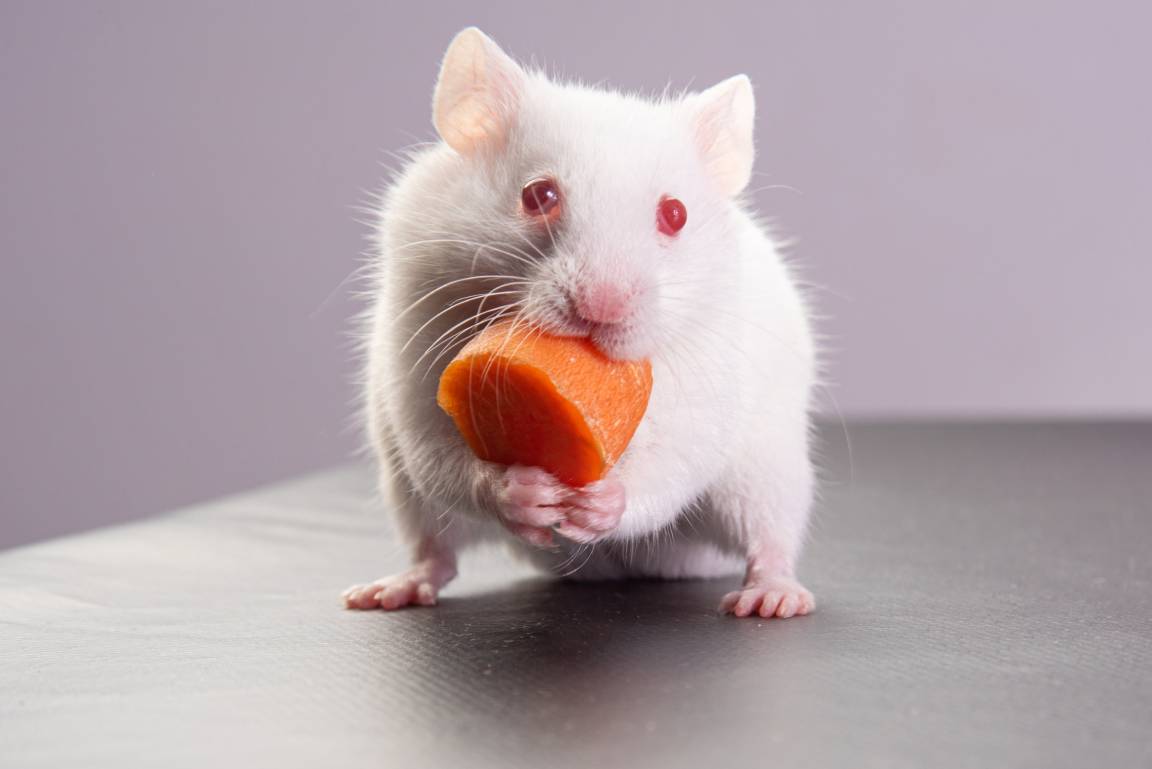
Hamsters require a balanced diet of high-quality hamster pellets consisting of 15%–25% protein, 35%–40% carbohydrates, 4%–5% fat, and 5% crude fiber. Timothy hay is also a healthy addition to your hamster’s home; it provides an excellent source of fiber, as well as bedding for them to dig and nest in. Hamsters can also enjoy roughly 10% of fresh veggies in their daily diet, like peas, pepper, greens, carrots, broccoli, squash, sweet potato, cucumbers, and cauliflower.
Hamsters can enjoy the occasional fruit, such as bananas, berries, raisins, pears, and apples, but it’s vital to provide fruit sparingly due to its sugar content. And of course, don’t forget to make sure they have access to fresh water at all times.
Conclusion
Hamsters can enjoy shrimp in moderation, and the smell usually attracts them. If you want to form a bond with your hamster, you can try holding them while they eat their little shrimp treat. Ensure you feed your hamster the appropriate balance of proteins, fats, carbs, and fiber, and ensure any special treat is safe before feeding; your veterinarian is an excellent source to confirm whatever special treat you give is safe.
Featured Image Credit: Rob Owen-Wahl, Pixabay


